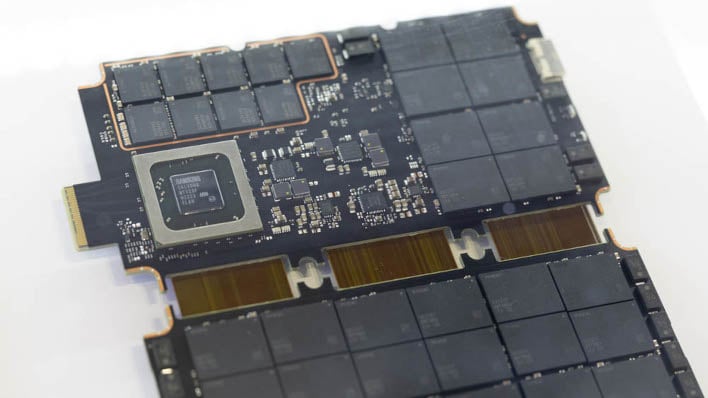Samsung 256TB And 512TB PCIe 6 SSDs Are On The Storage Horizon For Massive Capacity And Bandwidth
Now, there are some necessary disclaimers to be made here. First and foremost, it's not like this suddenly obsoletes the current PCIe 5.0 SSDs—they are more than fast enough for virtually all workloads, especially consumer tasks and particularly PC games that have yet to really utilize PCI Express storage to its fullest extent. Right now, PCIe Gen 6 SSDs are targeted solely at the high-end datacenter and high-performance computing spaces, particularly those tackling AI training workloads, which need to shove around vast amounts of data. It'll likely take some time for PCIe 6 SSDs to enter the consumer space at all; even PCI Express 5.0 SSDs haven't exactly flown off the shelves due to their high cost per gigabyte and limited practical utility over PCIe 4.0 SSDs.
PCIe 6 SSDs will eventually come to consumer and HEDT desktops, though. While games are unlikely to utilize the added bandwidth any time in the near future, there are still workloads like editing 4K and 8K video that would benefit immensely from the addition of yet-faster solid-state storage. There's also the potential for reducing lane count while retaining overall performance, which has the upshot of allowing consumer systems to connect more storage. Overall, though, the continued march toward faster, higher-capacity SSDs should lead to modern SSDs becoming cheaper as the new products begin to take their place in the market. Other factors like tariffs or material shortages may impact that forecast, though.
Images in this post: ServeTheHome



